
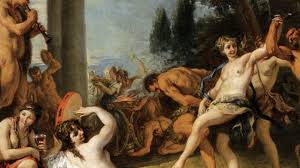


Many of us who know Jesus Christ as He is alive and accessible today are greatly concerned about the widespread apathy and indifference--if not outright hostility--towards the Lord Jesus in our day.
One of the most effective ways to hate a person is to ignore him--this is especially serious if that Person wants to make you whole, complete, and fulfilled, in this life and in the next. It is a more serious matter if you are unaware that the man Jesus owns the whole cosmos and sits in place of supreme authority over everything. (See Hebrews 1 for instance.)
Along with increasing concern for the many truly lost outsiders to the faith, many of us are coming to realize that all sorts of people who think they are safe in the family of God--are not. They have been misinformed, deceived, and/or lied to. Is it not important for everyone to stop what preoccupies them and see if Jesus is who He says He is? In fact, if you go directly to Jesus He will personally respond to you.
If you have experienced real love at all in your life, it is coming to you directly or through people from God who IS Love.
No one has seen God at any time. If we love one another, God abides in us, and His love has been perfected in us. By this we know that we abide in Him, and He in us, because He has given us of His Spirit. And we have seen and testify that the Father has sent the Son as Savior of the world. Whoever confesses that Jesus is the Son of God, God abides in him, and he in God. And we have known and believed the love that God has for us. God is love, and he who abides in love abides in God, and God in him." (1 John 4:12-16)
The word love has been thoroughly paganized and bastardized in the Western world over the centuries. The best way to recover what God's love is all about is to look up the uses of the Hebrew word Chesed in a good lexicon. Talk to Jesus directly so He can deepen your understanding of giving and receiving love.
Some Bible scholars believe chesed is difficult to translate but I disagree! Most of us Gentiles need to become more Jewish!
Wikipedia is helpful in enlightening all who are willing to study. (I recommend Wikipedia highly and consult them frequently. When I was a boy all we had, at the local library that is, was The Encyclopedia Britannica.)
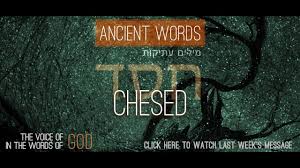
From Wikipedia:
Chesed (Hebrew חֶסֶד, also Romanized ḥesed) is a Hebrew word.
In its positive sense, the word is used of kindness or love between people, of piety of people towards God as well as of love or mercy of God towards humanity. It is frequently used in Psalms in the latter sense, where it is traditionally translated "lovingkindness" in English translations.
In Jewish theology it is likewise used of God's love for the Children of Israel, and in Jewish ethics it is used for love or charity between people. Chesed in this latter sense of "charity" is considered a virtue on its own, and also for its contribution to tikkun olam (repairing the world). It is also considered the foundation of many religious commandments practiced by traditional Jews, especially interpersonal commandments.
Chesed is also one of the ten Sephirot on the Kabbalistic Tree of Life. It is given the association of kindness and love, and is the first of the emotive attributes of the sephirot. (Note from Lambert: There is a dark side to the Kabbalah to be avoided by us novices, similar to the cults and isms of Christianity.)
The root chasad has a primary meaning of "eager and ardent desire," used both in the sense "good, kind" and "shame, contempt". The noun chesed inherits both senses, on one hand "zeal, love, kindness towards someone" and on the other "zeal, ardor against someone; envy, reproach". In its positive it is used of mutual benevolence, mercy or pity between people, of piety of people towards God, as well as grace, favour or mercy of God towards people.
It occurs 248 times in the Hebrew Bible. In the majority of cases (149 times), the King James Bible translation is "mercy", following LXX eleos. Less frequent translations are: "kindness" (40 times), "lovingkindness" (30 times), "goodness" (12 times), "kindly" (5 times), "merciful" (4 times), "favour" (3 times) and "good", "goodliness", "pity" (once each). Only two instances of the noun in its negative sense are in the text, translated "reproach" in Psalm 57:3, and "wicked thing" in Leviticus 20:17.
The translation of loving kindness in KJV is derived from the Coverdale Bible of 1535. This particular translation is used exclusively of chesed used of the benign attitude of YHWH ("the LORD") or Elohim ("God") towards his chosen, primarily invoked in Psalms (23 times), but also in the prophets, four times in Jeremiah, twice in Isaiah 63:7 and once in Hosea 2:19. While "lovingkindness" is now considered somewhat archaic, it is part of the traditional rendition of Psalms in English Bible translations. Some more recent translations use "steadfast love" where KJV has "lovingkindness."
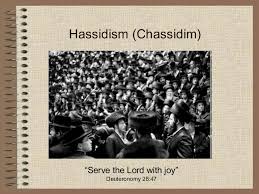
Note Added from Dave Roper:
Lambert, it occurred to me recently that the plural of chesed is, as you know, chassedim, the word used of the pious.
More properly it should mean, "The company of those who love and are loved by God."
David & Carolyn Roper2503 Bruins Circle Boise, ID 83704208-376-6607
Two separate passages in the Gospels have been speaking to me lately about moral leprosy, wrong motives, judgmental persons, hypocrites. We have few today who are afflicted with an obvious, incurable or unsightly lesion--but moral lepers are everyone! We spend vast sums when a family members gets ill or is terminally ill. Parents entrust their precious kids to thoroughly neopagan schools. Being a "virgin" in any sense of the word is laughable to the masses today, who are clueless about Jesus. "For the LORD sees not as man sees; man looks on outward appearance, but the LORD looks on the heart.” (1 Samuel 16:7)
Are we all unaware that Jesus is the Great Physician and that He still heals today? Some of us need to renegotiate our prescription meds with doctors and pharmacists. Some drugs in the pharmakeia class should be avoided like the plague. Most of us need to avoid junk food and too much booze. This we can do if we invite Jesus to help. Patent medicine peddlers are everywhere. Fake healers who only want our money have scared many aware. Even the coming antichrist will be capable of "healing" people, (Matthew 24:24).
Every follower of Jesus needs to reexamine often his or her personal relationship with Jesus. Leave no stone unturned because "the unexamined life is not worth living." Part time "Christians" are in big trouble.
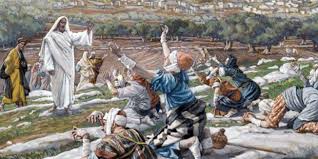
There are two instances of lepers being healed in Luke's gospel. In Chapter 5, during his early ministry in Galilee the following event took place:
While he was in one of the cities, there came a man full of leprosy; and when he saw Jesus, he fell on his face and besought him, "Lord, if you will, you can make me clean." And he stretched out his hand, and touched him, saying, "I will; be clean." And immediately the leprosy left him. And he charged him to tell no one; but "go and show yourself to the priest, and make an offering for your cleansing, as Moses commanded, for a proof to the people." But so much the more the report went abroad concerning him; and great multitudes gathered to hear and to be healed of their infirmities. But he withdrew to the wilderness and prayed. (5:12-16)
The disease of leprosy in the Bible was not merely the affliction we now know as Hansen's Disease. A variety of awful illnesses are included. Leprosy carried an enormous social stigma accompanied by isolation of the individual from the community and a complex process for treatment and restoration. "The regulations concerning leprosy are in Leviticus 13-14. The most terrible thing about it was the isolation it brought. The leper was to cry 'Unclean! Unclean!' wherever he went; he was to dwell alone; 'in a habitation outside the camp' (Leviticus 13:45-46). He was banished from the society of men and exiled from home. The result was, and still is, that the psychological consequences of leprosy were as serious as the physical." (Wm. Barclay)
Near the end of his ministry on his final journey to Jerusalem Jesus was met by a group of ten lepers, one of whom was a despised Samaritan. The account is simple but the implications are profound:
On the way to Jerusalem he was passing along between Samaria and Galilee. And as he entered a village, he was met by ten lepers, who stood at a distance and lifted up their voices and said, "Jesus, Master, have mercy on us." When he saw them he said to them, "Go and show yourselves to the priests." And as they went they were cleansed. Then one of them, when he saw that he was healed, turned back, praising God with a loud voice; and he fell on his face at Jesus' feet, giving him thanks. Now he was a Samaritan. Then said Jesus, "Were not ten cleansed? Where are the nine? Was no one found to return and give praise to God except this foreigner?" And he said to him, "Rise and go your way; your faith has made you well." (Luke 17:11-19)
First, lepers, of all people, know that they have serious needs with nothing good going for them. All ten were aware of who Jesus is. All ten called from a distance asking Jesus for mercy. All ten were immediately healed of their leprosy. Jesus asked all ten to visit a priest so they could be certified cleansed and healed and thus be restored to normal society. All ten had their deepest immediate needs met.
Only one leper--the low-life Samaritan--came back to thank Jesus. On the way he publicly declared his gratitude to God and then fell at the feet of Jesus. While all ten lepers were healed from their bodily disease, only one was made well and whole on the inside. "Rise up and go your way; your faith has made you well (Greek, sozo)," said Jesus.
Sozo is the root word for salvation, "to rescue from danger or destruction, it means to save a suffering one (from perishing), or one suffering from disease. Sozo means to make well, heal, to restore to health; to save in the technical biblical sense, to deliver from the penalties of the Messianic judgment, to save from the evils which obstruct the reception of the Messianic deliverance." Only whole (holy) men and women can enter heaven.
Lepers surely typify a sad group of suffering individuals in the world who are keenly aware of their condition. Thus (one would think) they are more likely than others to be seeking a cure--compared to "normal" people who are in good health or who have plenty of money and find their security there. All ten lepers called out to Jesus for help. Responding with immediate compassion, Jesus healed all ten lepers without a word. But only one of the lepers ended up a saved man. Is this typical of the response God gets from a very needy subgroup of society--only one out of ten responding from the heart to Jesus? What is the response rate to Jesus among the larger population of non-lepers in the world?
How many people cry out to God in a time of need or danger and find that God heals or rescues them? Surely many of these people join a church or are enabled to live changed life styles for the better because of God's one-time healing grace. But "rescuing from danger" by the Lord can be merely temporal or it can be eternal. It is not always both. In the eternal sense only one leper from this group of ten lepers ended up in the kingdom of God.
In other words, God is kind and compassionate to all men and He will often help people because they simply call on Him for mercy. (See Common Grace). Short-term, immediate help is no guarantee that the individuals helped go on to gain membership in the kingdom of God. Most people who are touched once by God in an unmistakable way do not go on to seek the internal healing of the heart, mind, emotions and will which accompanies eternal salvation.
The Samaritan leper did what all men should do when they meet the Son of God! Jesus is, after all, the legitimate Ruler of all mankind. The ex-leper fell at the feet of Jesus expressing thanks, gratitude and worship. All of us should do that, not just once but often. Being healed of leprosy is not the real deal. The more important issue is a new creation in the human heart. (2 Cor. 5).
Isaiah 45:23 is quoted twice in the New Testament (Romans 14:11, Philippians 2:10-11). Speaking through the prophet Isaiah God said,
For thus says the LORD, who created the heavens (he is God!), who formed the earth and made it (he established it; he did not create it a chaos, he formed it to be inhabited!): "I am the LORD, and there is no other. I did not speak in secret, in a land of darkness; I did not say to the offspring of Jacob, 'Seek me in chaos.' I the LORD speak the truth, I declare what is right. "Assemble yourselves and come, draw near together, you survivors of the nations! They have no knowledge who carry about their wooden idols, and keep on praying to a god that cannot save. Declare and present your case; let them take counsel together! Who told this long ago? Who declared it of old? Was it not I, the LORD?
And there is no other god besides me, a righteous God and a Savior; there is none besides me. "Turn to me and be saved, all the ends of the earth! For I am God, and there is no other. By myself I have sworn, from my mouth has gone forth in righteousness a word that shall not return: 'To me every knee shall bow, every tongue shall swear.' Only in the LORD, it shall be said of me, are righteousness and strength; to him shall come and be ashamed, all who were incensed against him." (Isaiah 45:18-24)
In the end all men everywhere will bow at the feet of Jesus. This is not optional. Obviously only those who kneel before Jesus in gratitude and commitment will receive favorable treatment from the King. one parable of the Kingdom related by Jesus closes on an alarming note: "A nobleman went into a far country to receive a kingdom and then return. But his citizens hated him and sent an embassy after him, saying, 'We do not want this man to reign over us' When [the king] returned, having received the kingdom, [he said] 'But as for these enemies of mine, who did not want me to reign over them, bring them here and slay them before me.'" (Luke 19:11-27)
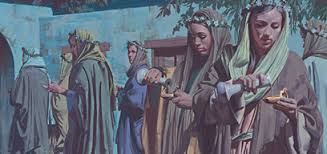
To switch to an entirely different example--from lepers to virgins, the late James M. Boice had some very helpful comments on the approaching second advent of Jesus and the subset of the professing followers of Christ who will inherit eternal salvation. Boice examines the three Parables of Jesus found at the end of the Olivet Discourse. Here are some of Boice's notes on the first of these parables. (May I suggest that the reader get Boice's very fine two-volume set on Matthew's gospel. Also his three volume set on the Psalms is excellent.)
"Then the kingdom of heaven shall be compared to ten maidens who took their lamps and went to meet the bridegroom. Five of them were foolish, and five were wise. For when the foolish took their lamps, they took no oil with them; but the wise took flasks of oil with their lamps. As the bridegroom was delayed, they all slumbered and slept. But at midnight there was a cry, 'Behold, the bridegroom! Come out to meet him.'
Then all those maidens rose and trimmed their lamps. And the foolish said to the wise, 'Give us some of your oil, for our lamps are going out.' But the wise replied, 'Perhaps there will not be enough for us and for you; go rather to the dealers and buy for yourselves.' And while they went to buy, the bridegroom came, and those who were ready went in with him to the marriage feast; and the door was shut. Afterward the other maidens came also, saying, 'Lord, lord, open to us.' But he replied, 'Truly, I say to you, I do not know you.' Watch therefore, for you know neither the day nor the hour." (Matthew 25:1-13)
Boice says, "it is helpful to notice that [these three parables] are parallel stories and have several important things in common. There are three ways in which the stories are the same.
1. In each case the return of the Lord is sudden and unexpected. In the story of the wise and foolish virgins, the cry, "Here's the bridegroom! Come out to meet him?" (v. 6) comes at midnight, when the women are asleep. The cry awakens them, and they rise up suddenly. In the story of the talents, the master returns "after a long time" (v. 19) when he is least expected. In the case of the sheep and the goats, the decisive moment arrives "when the Son of Man comes in his glory, and all the angels with him" (v. 31).
This is the chief point Jesus has been making from the very beginning of the discourse in chapter 24. The disciples wanted to know when Christ would return, and Jesus replied that they could not know. They would see many signs that would not be true signs of his coming: false Christs, wars, famines, earthquakes, persecution, apostasy, and false prophets. When he actually does come, his coming will be so sudden and unexpected that no signs of it can be given. Therefore, they must be ready.
The story of the wise and foolish virgins is connected to the previous chapter because it ends with words that are a deliberate echo of verse 42: "Therefore keep watch, because you do not know on what day your Lord will come." The parable ends, "Therefore keep watch, because you do not know the day or the hour" (Matt. 25:13). The story of the servants expands the much briefer story of the servants in Matthew 24:45-51. The parable of the sheep and the goats wraps up the entire discourse, drawing on words taken from the Lord's description of his return in chapter 24. In this chapter he also speaks of the Son of Man coming in his glory with the angels (v. 31).
2. In each case the Lard's return results in an unalterable division between two groups of people. These are stories about the final judgment, and the root meaning of the word judgment is "division." The Greek word is krisis, which we have retained in English with only a slight change in spelling. A crisis is an event that requires us to turn one way or another, to the right or to the left, forward or back. In this case, the division is between those who are ready when Jesus returns and those who are not ready. In the case of the women, five go into the wedding banquet and five are shut out. In the case of the servants, two are commended and one is judged. In the case of the sheep and the goats, the sheep inherit the kingdom that has been prepared for them while the goats receive eternal punishment.
3. In each case the people who are lost are utterly surprised at their rejection. This is the most striking feature of these stories. The women who are shut out of the banquet can hardly believe that the door has been closed to them. "Sir! Sir!" they say. "Open the door for us!" But the bridegroom does not. The wicked servant thinks he has done right by burying the talent he was given. He expects to be praised and is astonished that he is rebuked and cast out. The goats do not understand the Lord's disapproval. "Lord, when did we see you hungry or thirsty or a stranger or needing clothes or sick or in prison, and did not help you?" (v. 44).
When we think about this feature of the stories, we realize that they are not about people who have no use for Christ or his gospel. They are about people who are part of what we would call the visible church. Like many in our churches today, these people think they are saved and that they are on their way to heaven, but their actual destiny is hell. Is it any wonder the Lord states his warning to "keep watch and be ready" so forcefully?
The story of the ten virgins is a masterpiece, as Bible students have long recognized. It is realistic in its details and poignant in application, and the deeper a person explores it, the more profound its lessons become.
Jesus tells about ten young women who are invited to a marriage feast. Five are wise and five are foolish. The wise women show their wisdom by planning for the possible delay of the bridegroom. They take extra oil for their lamps so they will be ready when he comes. The foolish women neglect to do so. While the women wait, they all fall asleep. Suddenly a cry goes out that the bridegroom is coming. The wise get up and trim their lamps. The others recognize that they are out of oil and ask to borrow some. "No," say the wise. 'There may not be enough for both us and you. Instead, go to those who sell oil and buy some for yourselves" (v.9). The women who are unprepared start off for more oil, but while they are gone the bridegroom comes, and those who are ready go in with him to the feast. After a while the foolish virgins return and find the door shut.
"Open the door for us!" they cry.
But the bridegroom says, "I don't know you" (v. 12).
The Lord concludes, "Therefore keep watch, because you do not know the day or the hour [of my return]" (v. 13).
It is not difficult to see the story's main points, especially its chief point, namely, the difference between the wise and the foolish women. Five were ready and five were not. But it is also worth seeing the ways in which the women are alike. There are at least seven similarities.
1. All had been invited to the banquet. Each of these women had received an invitation and was anticipating a banquet when the bridegroom came. This feature singles out the people who have heard the gospel invitation. They are not the unreached who have never heard of Christ.
2. All had responded positively to the wedding invitation. Some may have disregarded it or scorned it, as the townspeople did in one of Jesus' other parables (Matt. 22:1-14). But that was not the case with these women. They had received the invitation and had responded positively, which they demonstrated by waiting for the bridegroom's appearance.
3. All were part of what we would call the visible church. They had joined the fellowship of those who were waiting for the Lord.
4. All had some affection and even love for the bridegroom. They were not indifferent participants. This was a happy occasion, and they were happy for the bridegroom. It was their affection for him that had brought them to the point at which the story begins: "Ten virgins ... took their lamps and went out to meet the bridegroom" (v. 1).
5. All confessed Jesus as their Lord. The New International Version translates the word they used to address the bridegroom as "Sir," but it is actually the word kyrios, which is usually rendered "Lord." In fact, it is translated "Lord" later in the chapter (vv. 37, 44).
6. All believed in and in some sense were waiting for Jesus' second coming. This is all highly commendable. In fact, if most ministers today had a church filled with such people, they would consider themselves greatly blessed. Here were people who had heard the gospel invitation, responded to it, professed love for Christ, joined the church, acknowledged Jesus as Lord, and were now waiting for Christ's return. Could anything be more desirable?...
7. All were alike in that they became drowsy and fell asleep when the bridegrooms' coming was delayed. Unbelievers sleep, but so do the elect at times. Remember Peter, James, and John in the garden? But suddenly the bridegroom came, and immediately the similarities vanished and the critical difference emerged. Five were ready and five were unprepared.
The setting of these chapters is the time leading up to Christ's return. So we must conclude that there will always be people in the church who have heard the gospel invitation, have responded in some sense, and may even have some affection for Jesus, but who are not born again.
Don't be sidetracked by trying to work out the meaning of the oil. Some have identified the oil as the Holy Spirit, because the Spirit is sometimes symbolized by oil in Scripture. But if we do that, we will think that a person can have the Holy Spirit and then run out of him, as it were, or that when one runs out he or she needs to get more. The right thing is to forget about the oil entirely and think only about being ready.
But what does it mean to be ready? Charles H. Spurgeon saw it as an inner change brought about by regeneration or new birth. He wrote, drawing on a good deal of Bible imagery:
A great change has to be wrought in you, far beyond any power of yours to accomplish, ere you can go in with Christ to the marriage. You must, first of all, be renewed in your nature, or you will not be ready. You must be washed from your sins, or you will not be ready. You must be justified in Christ's righteousness, and you must put on his wedding dress, or else you will not be ready. You must be reconciled to God, you must be made like to God, or you will not be ready. Or, to come to the parable before us, you must have a lamp, and that lamp must be fed with heavenly oil, and it must continue to burn brightly, or else you will not be ready. No child of darkness can go into that place of light. You must be brought out of nature's darkness into God's marvelous light, or else you will never be ready to go in with Christ to the marriage, and to be forever with him.
Which brings us back to the pressing question of these chapters: Are you ready? I do not ask, Have you responded to a gospel imitiation? Have you joined a church? Or do you believe in Jesus' second coming? I ask, Have you been born again? Have you believed on Jesus as your Savior from sin? Are you living for Jesus now? Are you truly ready, or are you among those who only seem to be prepared?
Notice that the difference between the wise women and foolish women was revealed by the coming of the bridegroom. That is, it was revealed in the crisis moment. During the days before the wedding or the night leading up to the start of the feast, few would have noticed that five women had adequately prepared for the bridegroom's coming and five had not. But suddenly the bridegroom came, and the difference was immediately disclosed. The same will happen when Jesus Christ returns. Many who have considered themselves true children of God will be shown they are not, and many who have perhaps not even been regarded as his children will be revealed as believers.
How are you to know whether you are in one camp or the other? One answer is whether you are faithful in serving Jesus. Another is whether you are serving others because of your love for Jesus. These are the answers the next two parables suggest. But let me suggest another answer here. If the return of the Lord Jesus Christ and the division it will cause will bring out the true condition of those who profess Christianity but are not actually born again, isn't it also the case that their condition may be revealed by lesser but, nevertheless, real crisis experiences now? If this is so, you can anticipate the results of the final judgment by the way you react to the problems that come into your life day by day.
Here is how one author puts it:
Nothing will more correctly reveal what is in a man than the coming upon him of some crushing and unlooked-for crisis. Let it be temporal ruin by the failure of his calculations or the disappointment of all his hopes: let it be the entrance of the death-angel into his home and the removal from it of his nearest and dearest earthly friend; let it be his own prostration by some serious illness which puts him face to face with his dissolution, and forthwith the extent of his resources is unfolded, and it is at once discovered both by others and by himself whether he is animated by unfailing faith in the Lord Jesus Christ and sustained by the grace of the Holy Spirit, or whether he has been deceiving himself, all the while relying on some other support. It was a shrewd remark of Andrew Fuller that a man has only as much religion as he can command in trial.
Let us therefore look back upon the past and analyze our experiences at such testing times as those to which I have referred. We have all had them. We have all heard already, in some form or other, this midnight cry, "Behold, the bridegroom cometh"; for in every such surprise as those which I have described, Jesus was coming to us. How did we meet him then? Did our lamps go out? Or were we able to trim them and keep them burning brightly all through? Oh, if by any such event we discovered our utter resourcelessness, let us betake ourselves now to Christ that he may thoroughly renew us by his Holy Spirit and so prepare us for that last and solemnest crisis when over the graves of the slumbering dead the archangel shall cry out, "Behold, the Bridegroom cometh," and all shall arise to stand before his great white throne.
Please note that the five foolish maidens were sent home to read their Bibles, learn about the symbolic -- to change their minds and alter their life styles,
The writer of those words was William Taylor, an American minister who wrote around the turn of the nineteenth century, and what he has written is enough to keep most of us examining ourselves for some time. To use Peter's words, Taylor encourages us to make our "calling and election sure" (2 Peter 1:10). But the parable of the wise and foolish virgins contains several more lessons.
1. The coming of the Lord may be delayed. This is an unmistakable inference from the story and one that has bearing on whether the events of these chapters are to be understood as having taken place at the time of the destruction of Jerusalem or whether they look forward to an unspecified future moment. Actually, there are several suggestions that Jesus' return may be delayed, among them Christ's teaching that "this gospel of the kingdom will be preached in the whole world as a testimony to all nations, and then the end will come" (Matt. 24:14).
2. The Lord will come without warning. This is why the parable ends with the words: 'Therefore keep watch, because you do not know the day or the hour" (v. 13). Jesus will come without warning either at the end of time or on the day of your death, which for you is much the same thing
3. Being prepared is not transferable. I do not mean by this that one saved person may not be used of God to bring the gospel to another, for that is how the gospel normally spreads. Paul speaks of the gospel being passed "from faith to faith" (Romans 1:17 KJV). I mean that no person can get by on another's faith. You cannot be saved by the life of Christ in someone else.
Many people delude themselves along those lines. They do not have true Faith in Christ, but they have been exposed to it over a period of years and suppose that in the time of Christ's judgment they will be able to appeal to God's work in the life of someone close to them.
"What right do you have to come into my heaven?"
"Well, I don't really know how to answer that, Lord. But consider my mother. She was a godly woman, and! learned a lot from her."
"I didn't ask that," the Lord replied. "I asked, What right do you have to enter my heaven?"
"Look at my Sunday school teachers, Lord! They were godly people; they certainly went out of their way to teach me. They prayed for me too. Don't forget them!"
Jesus replied, "What right do you have to enter heaven?"
This helps us understand why the wise women refused to give their oil to the five who were foolish. Their refusal seems uncharitable. The selfless thing would have been for the wise women to share their oil, even if it meant they themselves would have run out. But the story is not about charity. Rather, the parable reveals that when Christ returns, each person must stand on his or her own. Your mother's faith will not save you. Your wife's faith will not save you. You will not be saved by the spiritual life of your son or daughter. The question will be, Where do you stand? Are you alive in Christ? Are you ready?
4. Lost opportunities cannot be regained. The foolish women set out to buy oil, but the bridegroom came, and they were too late. So it will be when Christ returns in judgment. Those who are ready will be taken in to the marriage feast, and those who are not ready will be shut out.
Do not say, "I will turn to Christ later. I will repent after I enjoy a few more years of sin. There is always time for Jesus." You do not know that. Today may be the last time you will hear the gospel. And even if it is not - even if you do hear it again and again - it will be no easier for you to turn to God later. In fact, the opposite is the case. The fact that you have rejected the free offer of God's grace now will harden you so that you will find it much more difficult to repent later. Millions who once heard the gospel and postponed a decision have since perished in their sins. The only wise thing is to come to Jesus now. The Bible says, "Now is the time of God's favor, now is the day of salvation" (2 Corinthians 6:2).
Ray Stedman also had many insights into this parable which every seeker should read because many will be left behind when Jesus comes to take His Bride home.
"Jesus is able to save to the
uttermost those who come to God through Him."
|
Now it came to pass, when Jesus finished commanding His twelve disciples, that He departed from there to teach and to preach in their cities.
And when John had heard in prison about the works of Christ, he sent two of his disciples< and said to Him, “Are You the Coming One, or do we look for another?”<
Jesus answered and said to them, “Go and tell John the things which you hear and see:< The blind see and the lame walk; the lepers are cleansed and the deaf hear; the dead are raised up and the poor have the gospel preached to them. <6 And blessed is he who is not offended because of Me.”<
As they departed, Jesus began to say to the multitudes concerning John: “What did you go out into the wilderness to see? A reed shaken by the wind? < But what did you go out to see? A man clothed in soft garments? Indeed, those who wear soft clothing are in kings’ houses.< But what did you go out to see? A prophet? Yes, I say to you, and more than a prophet.< For this is he of whom it is written:<
‘Behold, I send My messenger before Your face,
Who will prepare Your way before You.’
“Assuredly, I say to you, among those born of women there has not risen one greater than John the Baptist; but he who is least in the kingdom of heaven is greater than he.< And from the days of John the Baptist until now the kingdom of heaven suffers violence, and the violent take it by force.< For all the prophets and the law prophesied until John. <And if you are willing to receive it, he is Elijah who is to come. < He who has ears to hear, let him hear!<
“But to what shall I liken this generation? It is like children sitting in the marketplaces and calling to their companions, <and saying:<
‘We played the flute for you,
And you did not dance;
We mourned to you,
And you did not lament.’
For John came neither eating nor drinking, and they say, ‘He has a demon.’ The Son of Man came eating and drinking, and they say, ‘Look, a glutton and a winebibber, a friend of tax collectors and sinners!’ But wisdom is justified by her children.”Then He began to rebuke the cities in which most of His mighty works had been done, because they did not repent: “Woe to you, Chorazin! Woe to you, Bethsaida! For if the mighty works which were done in you had been done in Tyre and Sidon, they would have repented long ago in sackcloth and ashes. But I say to you, it will be more tolerable for Tyre and Sidon in the day of judgment than for you. And you, Capernaum, who are exalted to heaven, will be brought down to Hades; for if the mighty works which were done in you had been done in Sodom, it would have remained until this day. But I say to you that it shall be more tolerable for the land of Sodom in the day of judgment than for you.”
At that time Jesus answered and said, “I thank You, Father, Lord of heaven and earth, that You have hidden these things from the wise and prudent and have revealed them to babes. Even so, Father, for so it seemed good in Your sight. All things have been delivered to Me by My Father, and no one knows the Son except the Father. Nor does anyone know the Father except the Son, and the one to whom the Son wills to reveal Him. Come to Me, all you who labor and are heavy laden, and I will give you rest. Take My yoke upon you and learn from Me, for I am gentle and lowly in heart, and you will find rest for your souls. <For My yoke is easy and My burden is light.” (Matthew 11:1-30)
Therefore, if anyone is in Christ, he is a new creation; old things have passed away; behold, all things have become new. Now all things are of God, who has reconciled us to Himself through Jesus Christ, and has given us the ministry of reconciliation, that is, that God was in Christ reconciling the world to Himself, not imputing their trespasses to them, and has committed to us the word of reconciliation. Now then, we are ambassadors for Christ, as though God were pleading through us: we implore you on Christ’s behalf, be reconciled to God. For He made Him who knew no sin to be sin for us, that we might become the righteousness of God in Him. (2 Corinthians 5:17-21)


Hear, O heavens, and give ear, O earth!
For the Lord has spoken:
“I have nourished and brought up children,
And they have rebelled against Me;
The ox knows its owner
And the donkey its master’s crib;
But Israel does not know,
My people do not consider.”
Alas, sinful nation,
A people laden with iniquity,
A brood of evildoers,
Children who are corrupters!
They have forsaken the Lord,
They have provoked to anger
The Holy One of Israel,
They have turned away backward.
Why should you be stricken again?
You will revolt more and more.
The whole head is sick,
And the whole heart faints.
From the sole of the foot even to the head,
There is no soundness in it,
But wounds and bruises and putrefying sores;
They have not been closed or bound up,
Or soothed with ointment.
Your country is desolate,
Your cities are burned with fire;
Strangers devour your land in your presence;
And it is desolate, as overthrown by strangers.
So the daughter of Zion is left as a booth in a vineyard,
As a hut in a garden of cucumbers,
As a besieged city.
Unless the Lord of hosts
Had left to us a very small remnant,
We would have become like Sodom,
We would have been made like Gomorrah.
Hear the word of the Lord,
You rulers of Sodom;
Give ear to the law of our God,
You people of Gomorrah:
“To what purpose is the multitude of your sacrifices to Me?”
Says the Lord.
“I have had enough of burnt offerings of rams
And the fat of fed cattle.
I do not delight in the blood of bulls,
Or of lambs or goats.
“When you come to appear before Me,
Who has required this from your hand,
To trample My courts?
Bring no more futile sacrifices;
Incense is an abomination to Me.
The New Moons, the Sabbaths, and the calling of assemblies—
I cannot endure iniquity and the sacred meeting.
Your New Moons and your appointed feasts
My soul hates;
They are a trouble to Me,
I am weary of bearing them.
When you spread out your hands,
I will hide My eyes from you;
Even though you make many prayers,
I will not hear.
Your hands are full of blood.
“Wash yourselves, make yourselves clean;
Put away the evil of your doings from before My eyes.
Cease to do evil,
Learn to do good;
Seek justice,
Rebuke the oppressor;
Defend the fatherless,
Plead for the widow.
“Come now, and let us reason together,”
Says the Lord,
“Though your sins are like scarlet,
They shall be as white as snow;
Though they are red like crimson,
They shall be as wool.
If you are willing and obedient,
You shall eat the good of the land;
But if you refuse and rebel,
You shall be devoured by the sword”;
For the mouth of the Lord has spoken.
21 How the faithful city has become a harlot!
It was full of justice;
Righteousness lodged in it,
But now murderers.
Your silver has become dross,
Your wine mixed with water.
Your princes are rebellious,
And companions of thieves;
Everyone loves bribes,
And follows after rewards.
They do not defend the fatherless,
Nor does the cause of the widow come before them.
Therefore the Lord says,
The Lord of hosts, the Mighty One of Israel,
“Ah, I will rid Myself of My adversaries,
And take vengeance on My enemies.
I will turn My hand against you,
And thoroughly purge away your dross,
And take away all your alloy.
I will restore your judges as at the first,
And your counselors as at the beginning.
Afterward you shall be called the city of righteousness, the faithful city.”
Zion shall be redeemed with justice,
And her penitents with righteousness.
The destruction of transgressors and of sinners shall be together,<
And those who forsake the Lord shall be consumed.
For they shall be ashamed of the terebinth trees
Which you have desired;
And you shall be embarrassed because of the gardens
Which you have chosen.
For you shall be as a terebinth whose leaf fades,
And as a garden that has no water.
The strong shall be as tinder,
And the work of it as a spark;
Both will burn together,
And no one shall quench them.
On Jordan’s Stormy Banks | O Come, O Come Immanuel | Are You Washed in the Blood? v1 | Are You Washed in the Blood? v2 |
Celtic Worship: In Christ Alone | Man of Sorrows | Lord of the Dance | Aric Leavitt Blue Grass Gospel | In The Cross | Amazing Grace
Majestic Sweetness |There is Power in the Blood | O the Deep, Deep love of Jesus | Come, Thou Almighty King | Heavenly Sunshine
The Lord who Heals | Come as a Child The Lord Who Heals | Israel the Wife of God and the Church the Bride of Christ
The Great Prostitute | Jezebel and Athaliah
Ray Stedman, Dealing with the Leprosy of Life | Ray Stedman, Sick Garments and Diseased Houses | Ray Stedman on the Left Behind
“...I am the First and the Last. I am He who lives, and was dead, and behold, I am alive forevermore. Amen.
And I have the keys of Hades and of Death.”
(Revelation 1:17,18)
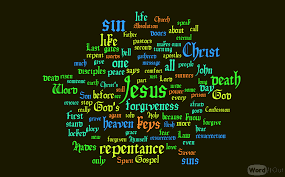


December 17, 2004. September 5, 2005. December 7, 2019. AZL 2/18/2020. September 5, 2022.